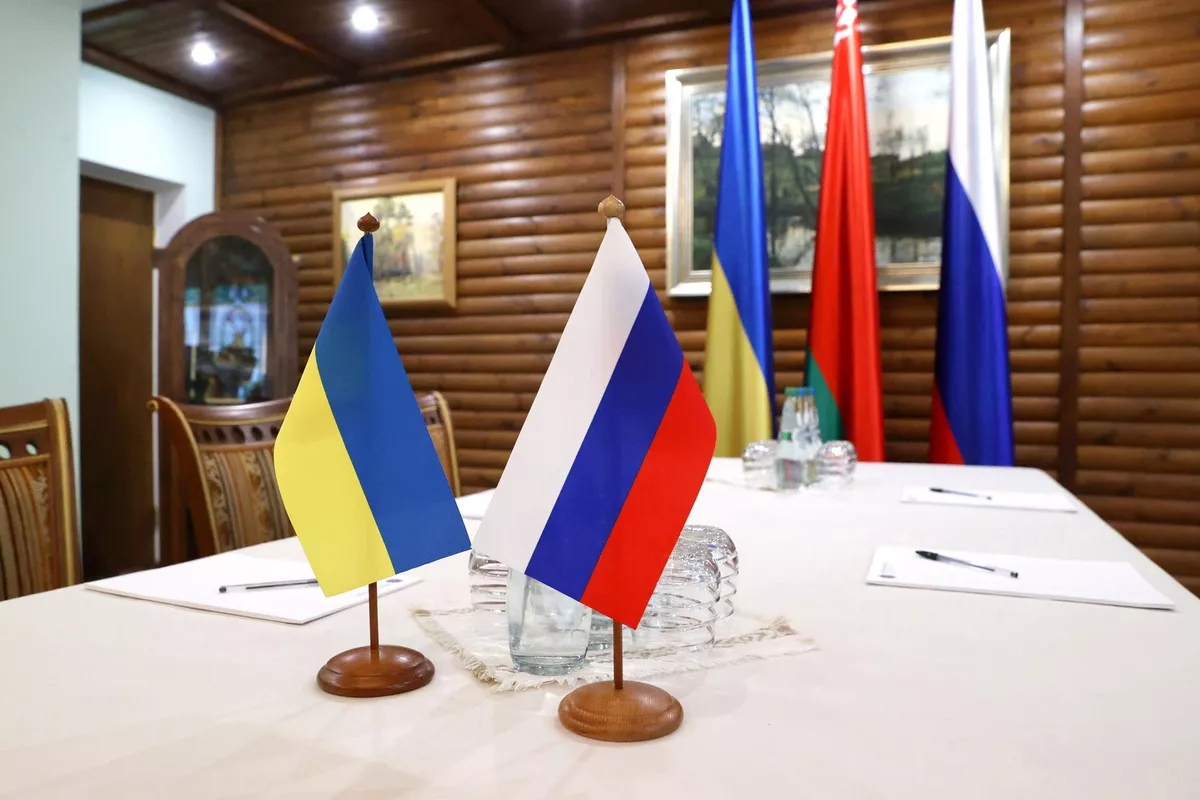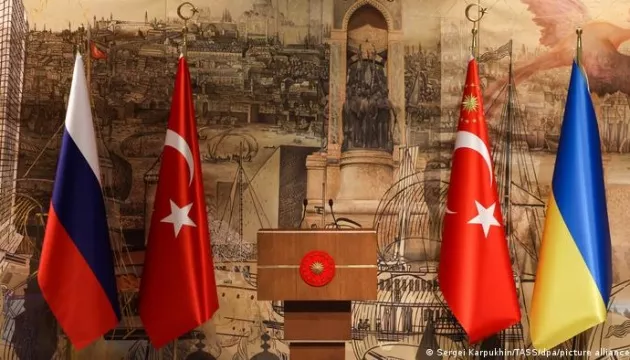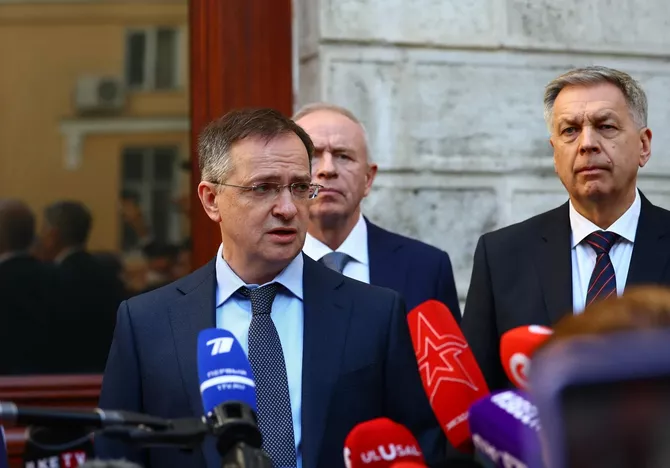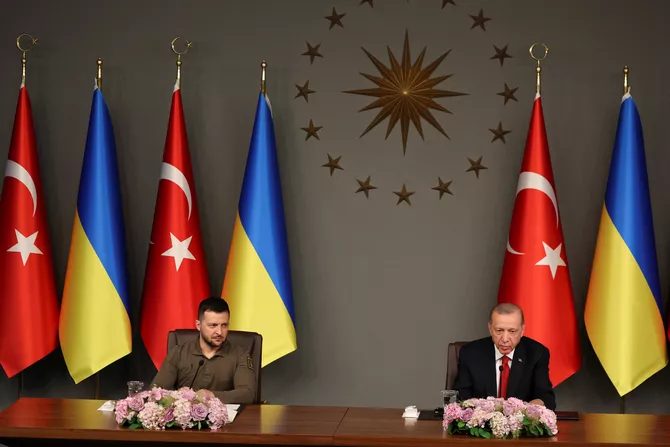
EPA via BelTa Handout
On June 2, representatives from Russia and Ukraine met in Istanbul for the first time in years to resume direct negotiations-albeit under heavy skepticism from much of the international community.
These talks, held with Turkish mediation, marked the first formal diplomatic engagement between the two sides since earlier efforts collapsed in 2022. While no significant agreements were reached, the meeting itself carried symbolic weight, signaling a potential shift-however tentative-toward reestablishing communication.
In a world gripped by wars, sanctions, and fractured diplomacy, the renewed contact between Russia and Ukraine-even if minimal, even if fragile-demands our attention. It is easy, almost reflexive, to dismiss recent negotiations as symbolic or even meaningless. But that would be a mistake. At this stage, the fact that talks are happening at all may be more important than what is actually being discussed.

Photo credit: dpa/picture alliance
To understand why, we need to recalibrate our expectations. These are not peace talks in the classical sense. There are no ceasefire proposals, no grand bargains, no dramatic breakthroughs. Instead, what we are witnessing is the reactivation of a diplomatic channel-a thin, cautious line of communication that had been silent for too long. The war has dragged on for over two years with staggering human costs and little meaningful dialogue. Against that backdrop, the mere act of talking is itself an event.
This is diplomacy in its most rudimentary form. But rudimentary does not mean irrelevant.
Too often, international observers fall into the trap of judging negotiations solely by their deliverables: how many agreements were signed, what territorial gains were frozen, whether prisoners were exchanged. But diplomacy, especially during ongoing conflict, is rarely so linear. Trust is not built in a day. Positions are not softened overnight. Sometimes, the most critical victories are procedural-the normalization of conversation, the mutual acknowledgment that dialogue is still preferable to silence.
And that is where we are now.
The talks held recently-described by some as procedural, by others as performative-have nonetheless set a precedent. They have restored a channel of engagement and announced to the world that a conversation is possible. That may sound like a low bar, but in today’s geopolitical climate, even a low bar can be a bridge.
To be clear, the subject matter of these initial talks has largely centered on humanitarian issues. These are far from trivial. Among the most significant proposals is Russia’s offer to unilaterally return the remains of approximately 6,000 Ukrainian soldiers. This gesture, while surely shaped by political calculation, also reflects a willingness to engage on deeply sensitive human concerns. The dignified return of war casualties is not only a matter of principle-it is a signal of respect, even amid hostility.
Likewise, the issue of children evacuated from conflict zones has featured prominently in the discussions. Russia has sought to counter widespread narratives suggesting mass abductions, offering instead a list of several hundred cases-each, it claims, being handled individually and with care. These claims may not satisfy all international observers, but they serve a purpose: they bring the conversation back to verifiable, negotiable terms. They turn myth into dossier, rumor into report. That alone is a step toward fact-based dialogue.
Critics will argue that these are low-stakes issues when compared to the larger questions of sovereignty, territorial control, or NATO expansion. But humanitarian diplomacy has always played a critical role in post-conflict reconciliation-and more importantly, in keeping pathways open when political dialogue remains frozen.
These talks are not expected to end the war. They are expected to keep communication alive until such an end becomes conceivable.

Russia's presidential aide Vladimir Medinsky, head of the Russian delegation sent to Turkey for peace talks with Ukraine, addresses the media outside the Russian Consulate in Istanbul, Turkey, 15 May 2025. EFE-EPA/TOLGA BOZOGLU
Much of the credit for keeping this process on track belongs to the negotiating teams themselves, particularly the Russian delegation led by Vladimir Medinsky. Often caricatured in the West, Medinsky has proven to be a capable and disciplined figure in this phase of talks. His background in both academia and statecraft gives him a flexibility that few Russian officials possess. He is not a bomb-thrower, nor a stonewaller. In the choreography of early-stage diplomacy, his restraint is an asset.
Still, no one should pretend that breakthroughs are imminent. Russia’s maximalist demands remain incompatible with Ukraine’s basic security objectives. The battlefield remains fluid, and both sides are under immense domestic and international pressure. Trust-if it can be rebuilt at all-will take time, transparency, and incremental reciprocity.
What makes these early discussions important is not what they contain, but what they make possible. They demonstrate that diplomacy is not dead. They prove that amid the chaos of war, leaders can still choose conversation over confrontation-even if the conversation is uncomfortable, awkward, or incomplete.
This is not peace. But it is a beginning.

Photo credit: Reuters
For those looking for immediate outcomes, disappointment is inevitable. But for those willing to see diplomacy as a long game-where legitimacy is restored step by step, and progress is measured not only by deals but by dialogue-there is cause for cautious optimism.
In the months ahead, the temptation to abandon talks will grow. Political cycles, military escalations, and public opinion may all conspire to derail what little progress has been made. But if diplomacy is to have any chance at all, its defenders must hold firm to the belief that even imperfect talks are better than no talks at all.
These negotiations may not yet be shaping the course of the war. But they are slowly, almost imperceptibly, shaping the conditions under which peace might one day be possible.
And in this world, that is not a small thing.
Share on social media